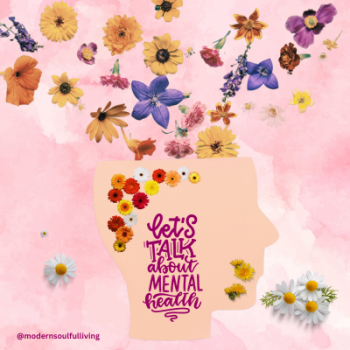Music is an integral part of our lives. It has the power to evoke emotions, bring back memories, and transport us to different places and times. Whether we are listening to our favorite song on the radio, attending a live concert, or playing an instrument ourselves, music has a profound impact on our brains and bodies. In recent years, there has been a growing body of research that highlights the therapeutic benefits of music. From reducing stress and anxiety to improving and cognitive function, music has the potential to heal and improve mental health.
The Science of Sound: How Music Affects the Brain
When we listen to music, our brains process the sound waves and interpret them as melodies, rhythms, and harmonies. Different areas of the brain are involved in this process, including the auditory cortex, which is responsible for processing sound, and the limbic system, which is involved in emotions and memory. This explains why music can evoke such strong emotional responses and trigger memories.
Our brains are wired for music, and this is likely one of the major reasons for its universality.
Music has the ability to affect our emotions in various ways. Upbeat and fast-paced music can make us feel energized and happy, while slow and soothing melodies can help us relax and unwind. Studies have shown that listening to music can also have physical effects on our bodies, such as lowering heart rate and blood pressure. This is why music is often used in healthcare settings to help patients manage pain, reduce anxiety, and improve overall well-being.
Music Therapy: A Holistic Approach to Healing
Music therapy is a specialized form of therapy that uses music to address physical, emotional, cognitive, and social needs of individuals. It differs from other forms of therapy in that it incorporates elements of music-making into the therapeutic process. Trained music therapists use various techniques such as singing, playing instruments, songwriting, and listening to music to help clients achieve their therapeutic goals.
Music therapy has been used to treat a wide range of mental health conditions, including depression, anxiety, post-traumatic stress disorder (PTSD), and autism spectrum disorder. It has been shown to improve mood, reduce stress and anxiety, enhance self-expression, and promote social interaction. In addition to individual therapy sessions, music therapy can also be conducted in group settings, allowing participants to connect with others and build a sense of community.
The Power of Lyrics: How Words Can Impact Your Emotions
While the melody and rhythm of a song can evoke emotions, it is often the lyrics that have the most profound impact on our thoughts and feelings. The words in a song can resonate with us on a deep level, reflecting our own experiences and emotions. They can provide comfort, validation, and a sense of understanding.
Different genres of music can have different effects on our mood. For example, listening to upbeat and positive songs can boost our mood and increase feelings of happiness. On the other hand, listening to sad or melancholic songs can help us process and express our own emotions. This is why many people turn to music as a form of emotional release during difficult times.
There are countless examples of songs with powerful lyrics that have resonated with listeners. From Bob Dylan’s “Blowin’ in the Wind” to John Lennon’s “Imagine,” these songs have become anthems for social change and have inspired generations of people to take action. The power of lyrics lies in their ability to convey messages that are universal and timeless.
Music and Stress: How Listening to Music Can Reduce Anxiety
Stress is a common part of our daily lives, and it can have a negative impact on our mental health if left unmanaged. Fortunately, music has been shown to be an effective tool for reducing stress and anxiety. When we listen to music that we enjoy, it can distract us from negative thoughts and help us relax.
The type of music that is most effective for stress relief can vary from person to person. Some people find that listening to classical music or instrumental tracks helps them unwind, while others prefer to listen to their favorite songs or genres. It is important to choose music that you personally find soothing and enjoyable.
Several studies have explored the effects of music on stress levels. One study found that listening to music before a stressful event can significantly reduce anxiety and improve performance. Another study found that listening to music during a stressful task can lower cortisol levels, a hormone associated with stress. These findings suggest that incorporating music into our daily routines can help us better manage stress and promote overall well-being.
The Healing Power of Singing: How Vocal Expression Can Boost Your Mood
Singing is a powerful form of self-expression that can have a positive impact on our mood and mental health. When we sing, our bodies release endorphins, which are natural feel-good chemicals that boost our mood and reduce stress. Singing also increases oxygen flow to the brain, improving cognitive function and promoting relaxation.
Singing can be used for therapeutic purposes in various ways. Group singing, such as in a choir or community singing group, can foster a sense of belonging and connection. It allows individuals to come together and create something beautiful as a collective. Singing can also be used as a form of self-care, allowing individuals to express their emotions and release tension.
There are numerous examples of how singing has been used to help people with mental health conditions. For example, singing has been shown to improve symptoms of depression and anxiety in individuals with Parkinson’s disease. It has also been used as a form of therapy for individuals with post-traumatic stress disorder (PTSD) and other trauma-related conditions. The act of singing allows individuals to express their emotions in a safe and supportive environment, promoting healing and well-being.
Music and Pain: How Listening to Music Can Help Manage Chronic Pain
Chronic pain is a complex condition that can have a significant impact on our mental health and quality of life. While there is no cure for chronic pain, there are various strategies that can help manage pain and improve well-being. One such strategy is listening to music.
Music has been shown to have analgesic effects, meaning it can help reduce pain and discomfort. When we listen to music, it can distract us from pain signals and shift our focus to something more pleasant. Music can also trigger the release of endorphins, which are natural painkillers produced by our bodies.
Several studies have explored the effects of music on chronic pain management. One study found that listening to music can significantly reduce pain intensity and improve mood in individuals with chronic pain. Another study found that music therapy can help reduce pain and anxiety in individuals undergoing medical procedures. These findings suggest that incorporating music into pain management strategies can be a valuable tool for individuals with chronic pain.
The Connection Between Music and Meditation: How Music Can Enhance Your Practice
Meditation and mindfulness practices have gained popularity in recent years as effective tools for reducing stress, improving focus, and promoting overall well-being. Music can be used to enhance these practices by creating a calming and soothing environment that facilitates relaxation and concentration.
When we listen to music during meditation or mindfulness practices, it can help us enter a state of deep relaxation and focus. The rhythmic patterns and repetitive melodies in music can synchronize with our breathing and heart rate, promoting a sense of calm and tranquility. Music can also help drown out external distractions and create a peaceful atmosphere.
The type of music that is most effective for meditation can vary from person to person. Some people prefer to listen to instrumental tracks or nature sounds, while others find that chanting or mantra-based music enhances their practice. It is important to choose music that you personally find soothing and conducive to relaxation.
There are numerous examples of how music has been used in meditation and mindfulness practices. For example, Tibetan singing bowls and crystal bowls are often used to create a meditative atmosphere and promote deep relaxation. Guided meditation tracks with soothing background music are also popular for individuals who are new to meditation and need assistance in focusing their attention.
Music and Community: How Shared Musical Experiences Can Improve Mental Health
Music has the power to bring people together and build a sense of community. When we participate in shared musical experiences, such as attending a concert or singing in a choir, it can have a positive impact on our mental health and well-being.
Shared musical experiences allow individuals to connect with others who share similar interests and passions. It provides an opportunity for social interaction, collaboration, and self-expression. Whether it is playing an instrument in a band or singing in a choir, these activities foster a sense of belonging and connection.
Music can also be used as a tool for community building and social change. From music festivals that bring people from different backgrounds together to grassroots movements that use music as a form of protest, music has the ability to unite people and inspire collective action. This sense of community and purpose can have a profound impact on our mental health and well-being.
There are countless examples of how music has been used to bring people together and improve mental health. For example, community music programs have been shown to reduce social isolation, improve self-esteem, and promote overall well-being. Music therapy groups for individuals with mental health conditions provide a safe and supportive environment for individuals to connect with others and share their experiences.
Music has a profound impact on our brains and bodies, and can be used as a powerful tool for healing and improving mental health. From reducing stress and anxiety to improving memory and cognitive function, music has the potential to heal and transform our lives. Whether we are listening to our favorite song or playing an instrument ourselves, incorporating music into our daily lives can have a positive impact on our mental health and well-being.
Incorporating music into our daily routines can be as simple as creating a playlist of our favorite songs, attending live concerts, or joining a community music group. By making music a regular part of our lives, we can harness its therapeutic benefits and improve our mental health. So go ahead, turn up the volume and let the music heal your mind, body, and soul.














